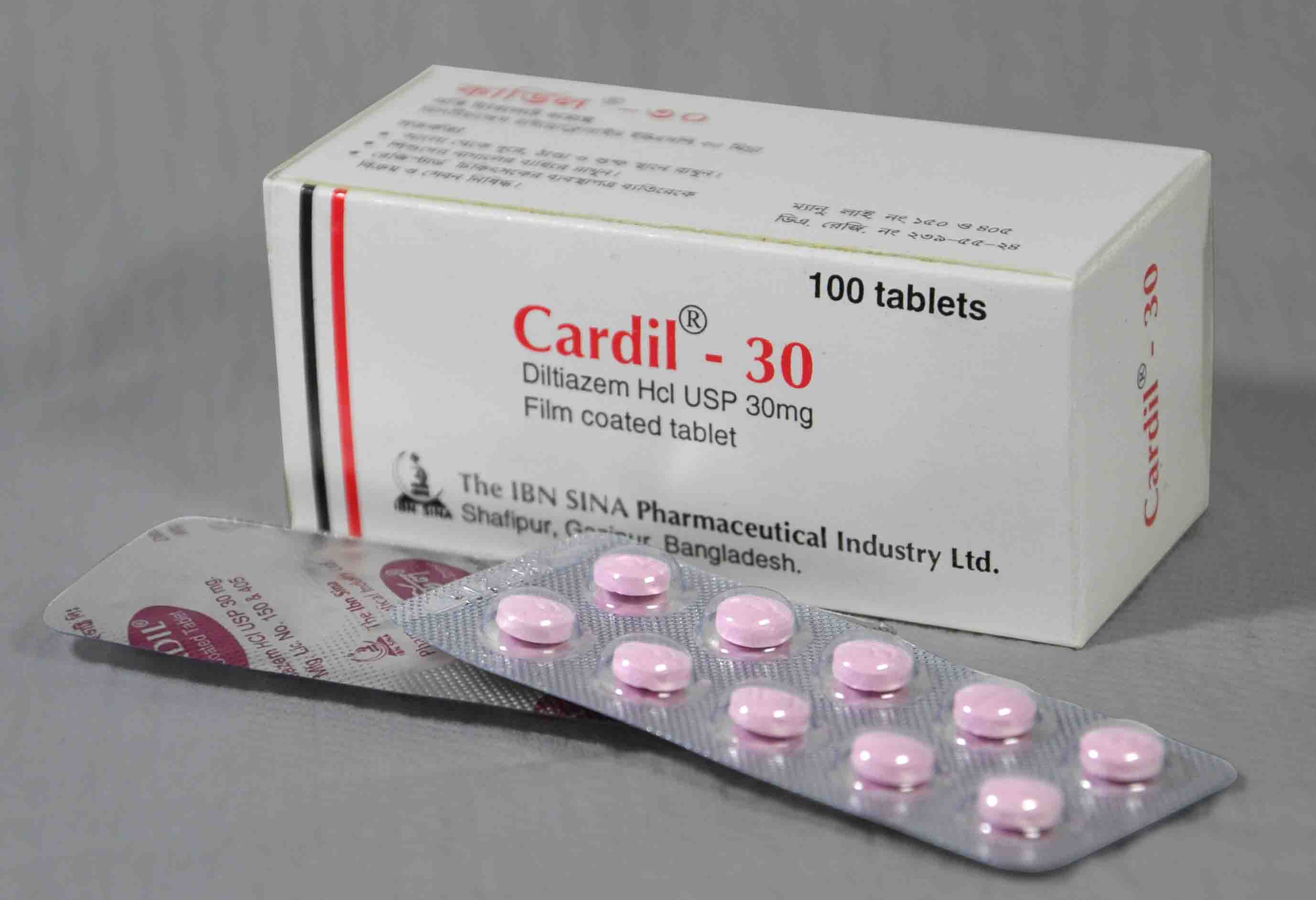
CARDIL
DILTIAZEM HCL USP
| NAME | STRENGTH | PACK SIZE | DOSAGE FORM |
|---|---|---|---|
| CARDIL 30 MG | 30 MG | 100 S | TABLET |
Cardil -30 Tablet: Each tablet contains Diltiazem HCl USP 30mg.
Cardil-60 Tablet: Each tablet contains Diltiazem HCl USP 60mg.
Cardil (Diltiazem) is a calcium-channel blocker with peripheral and coronary vasodilator properties. It lowers blood pressure and has some effect on cardiac conduction. Cardil interferes with the influx of calcium ions through the channels of active cell membranes.
Cardil is used for the prophylaxis and treatment of chronic stable (classical) and vasopastic angina pectoris and has also been used alone or in combination in the management of hypertension, also, Cardil is effective in myocardial infarction, coronary artery spasm, arrhythmias, Raynaud's phenomenon, oesophageal motility disorder and migraine.
Adult: The usual dose is 60 mg thrice daily. However patient's response may vary and dosage requirements can differ significantly between individual patients. If necessary, the divided dose may be increased to 180-300mg/day. Dosage may be started as 30 mg four times daily and
increasing at 1 to 2 days intervals until the optimum response is achieved. Higher doses upto 480mg/day have been used with benefit in some patients especially in unstable angina. Elderly and patients with impaired hepatic or renal function : The recommended starting dose is 60 mg twice daily. The heart rate should be measured regularly and the dose should not be increased if the heart rate falls below 50 beats per minute.
Children: Not recommended.
Diltiazem is contraindicated to the patients of severe bradycardia, sick sinus syndrome, pregnancy, second or third degree AV block.
Diltiazem should be used with care in patients with lesser degrees of AV block or bradycardia; also in patients with impaired left ventricular function. Caution should be required in patients with impaired liver or kidney function.
With Diltiazem headache, ankle oedema, hypertension, dizziness, flushing, rashes (toxic erythema), nausea and Gl disturbances may occur. Transient elevation in liver enzyme values and occasionally hepatitis have been reported. Diltiazem may depress cardiac conduction and has occasionally led to AV block, bradycardia and rarely asystole or sinus arrest.
There are no adequate and controlled studies of Diltiazem in pregnant women and the drug should be used during pregnancy only when the potential benefits justify the possible risk to the fetus. Because Diltiazem is distributed into milk, women receiving the drug should not breastfeed their infants; an alternative method of infant feeding should
be used if Diltiazem therapy is considered necessary in nursing women.
Digoxin, Propranolol, Cyclosporin, Theophylline, Cimetidine, Lithium & Carbamazepine.
Information not available.
Store in a cool (below 30°C) and dry place, away from light. Keep out of the reach of children.
Cardil 30 Tablet: Each box contains 10 x 10's tablet in Blister strip.
Cardil 60 : Each box contains 10 x 10's tablet in Blister strip.
